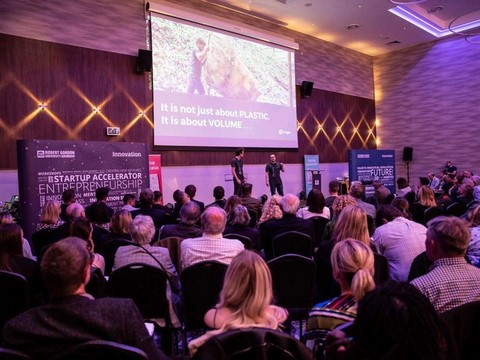Recent News and Articles
JCT 2024 Contracts Released!
May 19, 2024 | James Beckwith | 2 min read
JCTContractsDesign and BuildThe JCT have released 2024 editions of the design and build and minor works contract. The design and build contract what's launched in April 2024 and the minor works contract is now available via the JCT online website. Key changes to the 2024 editions of the contracts include the adoption of gender-neutral language and the use of electronic notices the inclusion of legislative changes such as the new Part 2A of the building regulations and updating the insolvency grounds to reflect the corporate insolvency and governance act 2020.
What are the benefits of introducing net zero
Tuesday, December 5, 2023 | Douglas Beckwith | 3 min read
carbonnet zero
Implementing a net-zero strategy for an existing property portfolio can bring about various benefits, both environmental and economic. Here are some key advantages:
1. Environmental Impact:
- Reduced Carbon Emissions: The primary goal of net-zero is to minimize or offset the carbon emissions produced by buildings. This contributes to the fight against climate change by lowering the overall carbon footprint of the property portfolio.
- Conservation of Resources: Implementing energy-efficient technologies and practices can lead to reduced energy and water consumption, helping to conserve valuable resources.
2. Operational Efficiency:
- Lower Operating Costs: Energy-efficient buildings typically have lower utility costs. Implementing renewable energy sources, energy-efficient appliances, and smart building technologies can lead to substantial long-term cost savings.
- Improved Asset Value: Green and sustainable buildings often have higher market values and are more attractive to environmentally conscious tenants or buyers, contributing to the overall value of the property portfolio.
3. Regulatory Compliance and Risk Mitigation:
- Compliance with Regulations: Governments and municipalities are increasingly implementing regulations to promote sustainable building practices. Adhering to these regulations not only ensures compliance but also reduces the risk of penalties or fines associated with non-compliance.
- Future-Proofing Against Regulatory Changes: Anticipating and adapting to future regulatory changes related to environmental standards can mitigate risks and position the property portfolio for long-term success.
4. Corporate Social Responsibility (CSR):
- Positive Brand Image: Adopting a net-zero strategy demonstrates a commitment to sustainability and environmental responsibility. This can enhance the brand image of the property portfolio owner or manager, attracting socially conscious tenants, investors, and partners.
- Stakeholder Engagement: Engaging with stakeholders who prioritize sustainability can foster positive relationships and collaborations, contributing to a positive corporate reputation.
5. Tenant Attraction and Retention:
- Tenant Demand: Many businesses and individuals are increasingly seeking environmentally friendly spaces. Offering sustainable, energy-efficient buildings can attract and retain tenants who prioritize these features.
- Health and Well-being: Sustainable buildings often incorporate features that enhance occupant health and well-being, contributing to higher tenant satisfaction and retention rates.
6. Financial Incentives:
- Government Incentives: In some regions, governments offer financial incentives, tax credits, or grants for implementing energy-efficient and renewable energy solutions. Taking advantage of these incentives can further reduce the net cost of implementing a net-zero strategy.
7. Innovation and Technological Advancements:
- Technological Innovation: Embracing net-zero initiatives often involves adopting innovative technologies. This can lead to increased operational efficiency, improved building performance, and a competitive edge in the market.Implementing a net-zero strategy may require upfront investments, but the long-term benefits, both in terms of environmental sustainability and financial returns, can be substantial.
What are the costs of introducing net zero?
Tuesday, December 5, 2023 | Douglas Beckwith | 3 min read
carbonnet zero
The costs associated with introducing a net-zero carbon strategy to an existing property portfolio can vary based on factors such as the size of the portfolio, the current state of the buildings, and the specific measures taken to achieve carbon neutrality. Here are some common costs to consider:1. Energy Efficiency Upgrades:
- Retrofitting buildings to improve energy efficiency through measures such as enhanced insulation, high-efficiency lighting, and upgraded HVAC systems.
- Installation of smart building technologies to optimize energy consumption.
2. Renewable Energy Systems:
- Incorporating renewable energy sources, such as solar panels or wind turbines, to generate clean energy on-site.
- Upgrading to renewable energy providers or purchasing renewable energy credits.
3. Building Envelope Improvements:
- Implementing changes to the building envelope, such as upgrading windows and doors, to enhance insulation and reduce heat loss.
4. Water Conservation Measures:
- Installing water-efficient fixtures and systems to reduce water consumption.
5. Monitoring and Measurement Systems:
- Implementing monitoring and measurement systems to track energy and resource usage, allowing for better management and optimization over time.
6. Employee Training and Engagement:
- Training building occupants on energy-efficient practices and encouraging sustainable behaviors.
7. Technological Investments:
- Investing in advanced technologies, such as Building Energy Management Systems (BEMS) or Internet of Things (IoT) devices, to optimize building performance.
8. Lifecycle Assessments:
- Conducting lifecycle assessments to evaluate the environmental impact of materials and construction methods, which may influence decisions during renovations or new construction.
9. Certifications and Audits:
- Obtaining certifications like LEED (Leadership in Energy and Environmental Design) or BREEAM (Building Research Establishment Environmental Assessment Method) may involve upfront costs for assessments and audits.
10. Regulatory Compliance:
- Costs associated with meeting and complying with local, regional, or national regulations related to sustainability and energy efficiency.
11. Financing and Capital Investments:
- Securing financing for upfront costs or making capital investments in sustainable technologies and building improvements.
12. Maintenance and Operations:
- Budgeting for ongoing maintenance and operational costs associated with the new systems and technologies.It's important to note that while there are upfront costs associated with implementing net-zero strategies, there are often long-term savings in operational costs due to increased energy efficiency. Additionally, government incentives, tax credits, and rebates may be available to offset some of the initial costs.
The specific costs will depend on the unique characteristics of each property within the portfolio and the chosen strategies for achieving net-zero carbon. Conducting a thorough cost-benefit analysis and considering the long-term financial and environmental benefits is crucial for making informed decisions.What needs to be changed when implementing net zero carbon?
Tuesday, December 5, 2023 | Douglas Beckwith | 2 min read
carbonnet zeroplant and equipment
Implementing net-zero carbon strategies in existing buildings typically involves making various changes to the plant and equipment to improve energy efficiency and reduce carbon emissions. The specific upgrades required will depend on the building's current systems, its condition, and the goals of the net-zero carbon strategy. Here are some common types of plant and equipment that may need to be modified or replaced:
1. Heating, Ventilation, and Air Conditioning (HVAC) Systems:
- Upgrade to high-efficiency HVAC systems.
- Implement zone heating and cooling controls.
- Install heat recovery systems to capture and reuse waste heat.
2. Lighting:
- Replace traditional lighting with energy-efficient LED fixtures.
- Install occupancy sensors and daylight harvesting controls to optimize lighting usage.
3. Building Envelope:
- Improve insulation to minimize heat loss or gain.
- Upgrade windows and doors to increase energy efficiency.
4. Water Heating:
- Replace outdated water heaters with energy-efficient models, such as heat pumps or solar water heaters.
- Implement hot water recirculation systems to minimize water and energy waste.
5. Renewable Energy Sources:
- Install solar panels or wind turbines to generate on-site renewable energy.
- Connect to off-site renewable energy sources through power purchase agreements or green energy procurement.
6. Building Management Systems (BMS):
- Upgrade or install BMS to monitor and control building systems for maximum energy efficiency.
- Implement smart automation for real-time adjustments based on occupancy and weather conditions.
7. Insulation and Air Sealing:
- Retrofit insulation and seal air leaks in the building's envelope to improve energy efficiency and reduce heating and cooling demands.
8. Energy-Efficient Appliances and Equipment:
- Replace older, energy-guzzling appliances (e.g., refrigerators, ovens, and water heaters) with ENERGY STAR-rated models.
9. Water Efficiency:
- Install low-flow faucets, toilets, and showerheads to reduce water consumption.
- Implement water recycling or graywater systems for non-potable water use.
10. Energy Storage:
- Install energy storage systems (e.g., batteries) to store surplus renewable energy and optimize energy use.
11. Combined Heat and Power (CHP) Systems:
- Implement CHP systems to simultaneously generate electricity and capture waste heat for heating or cooling purposes.
12. Transportation Infrastructure:
- If the building has associated parking facilities, consider installing electric vehicle (EV) charging stations or promoting alternative transportation options to reduce carbon emissions from commuting.
13. Energy Management Software:
- Utilize energy management software to track and analyze energy usage, set performance benchmarks, and identify opportunities for improvement.
14. Building Controls and Sensors:
- Upgrade or install advanced building controls and sensors for more precise monitoring and control of various systems, including lighting, HVAC, and water use.
15. Water Treatment and Filtration:
- Implement water treatment and filtration systems to enhance water quality and reduce the need for chemical treatments.
16. On-Site Energy Generation:
- Consider on-site generation options like microturbines or fuel cells for supplementary energy production.
It's important to conduct a comprehensive energy audit and assessment to identify the specific needs of each building and develop a tailored net-zero carbon strategy. The changes required will vary based on the building's location, size, age, and current systems, as well as the budget and timeline for implementation.Why property managers should adopt net zero
Tuesday, December 5, 2023 | Douglas Beckwith | 1 min read
carbonnet zeroProperty managers should consider adopting net-zero carbon strategies in their existing property portfolios for several important reasons:
1. Environmental Responsibility: Embracing net-zero carbon practices demonstrates a commitment to environmental responsibility and sustainability. It helps mitigate the impact of climate change by reducing greenhouse gas emissions and other environmental impacts associated with property management.
2. Regulatory Compliance: Many regions are implementing regulations and policies aimed at reducing carbon emissions and achieving climate goals. Property managers who proactively adopt net-zero carbon strategies can ensure compliance with current and future regulations, reducing the risk of fines or legal issues.
3. Tenant Attraction and Retention: Tenants are increasingly looking for sustainable and environmentally friendly properties. By offering net-zero carbon buildings, property managers can attract environmentally conscious tenants and increase tenant satisfaction, leading to higher occupancy rates and longer lease durations.
4. Cost Savings: Implementing energy-efficient and sustainable practices can lead to significant cost savings in the long run. Energy-efficient buildings typically have lower utility bills, reduced maintenance costs, and increased property value, providing a compelling financial incentive for property managers.
5. Competitive Advantage: By being at the forefront of the sustainability movement, property managers can gain a competitive advantage in the real estate market. Properties with net-zero carbon certifications and sustainability features may command higher rental and resale prices.
6. Future-Proofing Investments: As the world moves toward a low-carbon economy, properties that are not environmentally friendly may become obsolete or face higher operational costs. Property managers who invest in net-zero carbon strategies are better positioned to adapt to evolving market demands.
7. Risk Mitigation: Climate change poses risks to real estate, such as increased extreme weather events and changing insurance dynamics. Net-zero carbon properties tend to be more resilient to these risks, reducing potential damage and insurance costs.
8. Positive Public Relations: Embracing sustainability and net-zero carbon goals can enhance a property management company's reputation. It demonstrates corporate social responsibility and can lead to positive media coverage and improved relationships with stakeholders.
9. Access to Incentives and Financing: Some governments and financial institutions offer incentives, grants, and favorable financing terms for sustainable building projects. Property managers may access these resources to support their net-zero carbon initiatives.
10. Fostering Innovation: Pursuing net-zero carbon strategies can foster innovation within the property management industry. It encourages the development and adoption of new technologies and practices that benefit both the environment and the bottom line.
In summary, adopting net-zero carbon strategies in existing property portfolios is a win-win proposition for property managers. It benefits the environment, meets regulatory requirements, attracts and retains tenants, saves money, and enhances the overall competitiveness and resilience of the properties in the portfolio.Mensura Finalists
Thursday, May 4, 2023 | James Beckwith | 1 min read
RGU AcceleratorMensura is delighted to have been selected with 8 other organisations to make presentations at the RGU Start Up Accelerator programme final.
James Beckwith, Director, who has led the initiative, said, "It is really good to have our efforts recognised. We are excited about appearing in Aberdeen and are looking forward to making our presentation. Our thanks to our mentor, Sally Charles, for her patient diplomacy in steering us through the programme and getting us ship-shape for the big day."
The Start Up Accelerator programme is an initiative of Robert Gordon University that helps small new businesses to develop and promote their products and services. The final is being held at the One Tech Hub in Aberdeen on 11 May 2023.
Mensura and the RGU Start Up Accelerator
Thursday, March 30, 2023 | James Beckwith | 3 min read
RGU AcceleratorCelebrating the fifth year of the acclaimed business development programme, 2023's RGU Startup Accelerator programme was open exclusively to RGU students and alumni within five years of graduation.
The application process for this year’s programme was as competitive as ever with new enquiries still incoming now despite applications closing in December. Following the deadline, the Accelerator boot camp was held in mid-January, during which our final teams were selected to officially join the programme starting later that month.
Each cohort participant will benefit from five months of business training and support; at least £2,000 in equity-free seed funding with thousands more up for grabs during the programme; mentorship; and free city centre co-working space.
During the process, all start-ups are supported in their growth by ourselves in the Entrepreneurship and Innovation Group (EIG) where they can explore their innovations further by testing assumptions; conducting market research; undertaking business model analysis; and working on their ever-important financials. Perhaps most exciting, the team will also be helping them to prepare their pitch for this year’s showcase event, taking place next month on Thursday 11 May at the Sandman Hotel in Aberdeen.
Early-stage ideas in this year’s programme range from generative artificial intelligence to an asylum seeker support organisation.
BackWe call it "Safe Aerial Data Collection" for a reason
Sunday, March 5, 2023 | Douglas Beckwith | 1 min read
aerial data collectionsafetydronesYou may have read the reports that Mark Bagguley, 49, has narrowly avoided jail-time after he flew his drone dangerously close to a military plane while a no-fly zone was in place.
Evaluative Mediation suits the Construction Industry
Friday, March 3, 2023 | Douglas Beckwith | 3 min read
dispute resolutionmediationADREvaluative mediation is a type of mediation where the mediator exerts the most control throughout the mediation and is the most vocal about the positions of the parties and their offers. An evaluative mediator will offer opinions on the strengths and weaknesses of the parties and control how and when the parties interact. This mediation process tends to work well if there is an uneven power dynamic in the mediation, such as in many construction contracts and sub-contracts. This allows the mediator to drive the conversation to focus on the important issues and what the parties need. Evaluative mediation is modeled after settlement conferences held by judges and is the oldest and original style of mediation. Unlike facilitative mediators, evaluative mediators not only control procedure but also the outcome of the mediation
Lawyers Managing Projects? Thought it couldn't be done?
Thursday, March 2, 2023 | Douglas Beckwith | 3 min read
legal project management- Fixed fees are here and a new costs regime applies – the costs of litigation will need to be predicted in advance and clients’ budgets managed like never before.
- Good costs management requires the application of good project management skills and methods to ensure costs are predictable and outturn costs do not exceed the budget.
- We can show you how to use project management techniques to manage your legal projects efficiently and effectively.
Can I really design my own dispute resolution system?
Tuesday, February 28, 2023 | Douglas Beckwith | 2 min read
dispute resolutionEDR- Executive Dispute Resolution (EDR) is a new, structured, approach to resolving business conflict at the project level by harnessing the commercial acumen of senior managers.
- Successful EDR leads to a commercially realistic, robust and legally binding settlement without the disadvantages that traditional mediation and adjudication procedures provide.
- EDR allows you to control the outcome (and the costs) of negotiations rather than have decisions imposed upon you by a Judge or an Adjudicator.
Need to get paid but don't want to rock the boat?
February 28, 2023 | Douglas Beckwith | 3 min read
mediationcash flowdispute resolution- The success rate of mediation at resolving claims is good – typically more than 70% settling in a day – and it preserves business relationships.
- Mediation allows you to control the outcome of negotiations rather than have decisions imposed upon you by a Judge or an Adjudicator.
- Mediation allows you to control the cost of settling your claim and frequently results in faster payment.
Extracts from Jim's Blog Archive
Wednesday, February 22, 2023 | James Beckwith | 25 min read
Construction CostsBIMTeamworkA couple of months ago I looked at the rising costs in the construction industry, I wanted to follow this up to see how things are progressing. Energy costs are an important issue affecting construction material production in addition to supply chain constraints due to the conflict in Ukraine. I wanted to explore how this conflict has affected construction costs, main findings include:
- In early 2022 material price escalation was falling from the pandemic highs in 2021, however the conflict in Ukraine has come pushed prices back up.
- Materials that are energy intensive to produce are showing increases, materials such as cement, concrete, bricks, plastic pipes, insulation etc…
- Pre-pandemic cost of energy for the production of materials accounted for between 20/30% of the production cost. This percentage cost will increase especially in Europe where energy has been dependant on Russian supplies.
- There has been a reliance on Russian, Belarusian and Ukrainian steel in European supply chains.
Are Online Businesses more Sustainable?
Friday, February 17, 2023 | James Beckwith | 2 min read
sustainabilityIn the UK in 2020 the Construction industry was responsible for 110 tonnes1 of CO2 emissions per £1m spent. Or, to put it another way, almost 58% of emissions from the industries studied. With the Governments drive towards NetZero by 20502 an understanding of how our actions impact the environment is more important than ever. Of this 110t of CO2 Professional Services were responsible for 10 tonnes3 of CO2 emissions per £1m spent.
E-Commerce has been given a bad rap for environmental issues leading to an increase is packaging and an increase in carbon costs due to travel and logistics, Byrd have commended that 2bn tons of waste end up in landfills worldwide annually4 so understanding where our waste goes is important to avoid it ending up in the great pacific garbage patch. Taking a services business online however means your business has great potential to reduce carbon emissions and waste.
If we look back to 2020, when the pandemic was in full swing offices around the country closed. In England whilst many sites closed, the construction industry was nonetheless encouraged to continue its operations.5 Thus business continued amidst the global reduction in carbon emissions due to less travel and offices being shut for varying periods. Nature comment that in this period daily carbon emissions reduced by 17%. Permanently taking your service provision online helps to support the ongoing reduction of carbon emissions.
Mensura’s unique service centre means that the services are delivered in a paperless environment. A Study by Multibriefs has shown that cost of printing in office space is typically USD $80/person. Mensura save this cost leading to lower overheads, which are passed on to you together with lower carbon emissions and waste - all of which supports our drive to NetZero.
The British Business Bank has undertaken research that shows that SME’s account for half of commercial driven emissions6. Mensura’s unique on-line offering means we are playing our part in reducing the the amount of carbon associated with engaging professional services.
Mensura services are delivered in a collaborative digital environment whereby these carbon emissions are reduced and travel when necessary is undertaken in the most efficient manner possible using public transport the cost of which is covered by our overhead but the carbon benefit is captured in your projects.
[1] Office for National Statistics, Atmospheric emissions: greenhouse gas emissions intensity by industry, Accessed Jan 2023, https://www.ons.gov.uk/economy/environmentalaccounts/datasets/ukenvironmentalaccountsatmosphericemissionsgreenhousegasemissionsintensitybyeconomicsectorunitedkingdom
[2] UK Government, Review of NetZero, https://www.gov.uk/government/publications/review-of-net-zero#:~:text=The%20government%20is%20committed%20to,burdens%20on%20businesses%20or%20consumers. Accessed Jan 2023
[3] Office for National Statistics, Atmospheric emissions: greenhouse gas emissions intensity by industry, Accessed Jan 2023, https://www.ons.gov.uk/economy/environmentalaccounts/datasets/ukenvironmentalaccountsatmosphericemissionsgreenhousegasemissionsintensitybyeconomicsectorunitedkingdom
[4] Byrd, The impact of growing e-commerce on the environment, https://blog.getbyrd.com/en/rise-of-sustainable-ecommerce, accessed Jan 2023.
[5] UK Government, Letter to those working int eh construction industry, https://assets.publishing.service.gov.uk/government/uploads/system/uploads/attachment_data/file/948061/letter-to-construction-sector-december-2020.pdf, Accessed Jan 2023
[6] The British Business Bank, Smaller Business and Transition to Net Zero, https://www.british-business-bank.co.uk/wp-content/uploads/2021/10/J0026_Net-Zero-Infographic-v6-title.pdf, Accessed Jan 2023.Mensura joins RGU Start Up Accelerator Programme
February 8, 2023 | James Beckwith | 1 min read
MensuraMensura is delighted to be invited to participate in the Robert Gordon University Entrepreneur Innovation Group Start Up Accelerator. The EIG Start Up is a business development programme where businesses are offered training on the skills necessary to accelerate their start up journey.
Director James Beckwith said, "This demonstrates our offering is something that the market should respond to and we are delighted to have access to the skills to help shape and grow our business with the EIG Team.
In our application the judges commented that our online deconstructed fixed fee offer was “an Interesting proposition” and that this “would be a strong team to deliver this concept.”
If you are interested in finding out more about our offer or the work that we are doing with the RGU EIG group please contact us.ChatGPT and Deconstruction
Monday, February 6, 2023 | Douglas Beckwith | 2 min read
deconstructionChatGPTThere has been a lot of chat about ChatGPT (pardon the pun) of late so I thought I would try it out using our principles of deconstruction for professional services.
I posed the question, "Explain how Jacques Derrida's principles of deconstruction can be applied to the delivery of professional services." This is what it said,
"Jacques Derrida's principles of deconstruction involves questioning and disrupting traditional binary oppositions (such as self/other, presence/absence) and hierarchical relationships within a text or cultural artifact. In professional services, this means examining and challenging dominant power dynamics and biases in the delivery of services. Deconstruction can lead to more equitable and inclusive practices by foregrounding marginalized perspectives and addressing power imbalances. By deconstructing assumptions and hegemonic ideologies, professional services can be more critically reflective and provide more nuanced and culturally sensitive solutions."
I like to think that we say much the same thing but in straightforward terms. If you are interested in deconstruction principles to improve service delivery then please contact us, we will be happy to talk to you.
BackGolden Years
Wednesday, February 1, 2023 | Douglas Beckwith | 2 min read
mensuradeconstructionThis month marks the 50th anniversary of my starting work in the construction industry as a quantity surveyor. I joined Piper and Richardson in Holborn, London in the days when we still measured Bills of Quantities in feet and inches, there were no calculators and I got very good at “squaring” dimensions, “abstracting” and “billing”.
I have seen a lot of change in 50 years yet despite all our achievements as an industry many of the attitudes that prevailed in the 1970's still exist today. I have also seen 4 recessions impact the industry and learned how to get through them. I have embraced change throughout and was an early adopter of technology; writing code in Basic for measuring drainage, as I recall. A long way from CostX and BIM of today!
Most importantly I have met lots of people. Some were kind and helpful. Some were not. (Though I'm not sure whether being called a "terrorist" by the MD of Gatwick Airport Limited helped or hindered my career!). There are so many people that I could mention but here are a few that I am most grateful to: Donald Richardson FRICS, Clifford Beard FRICS MBE, Colin Dove FRICS, Stan Hornagold FRICS, David Baker, David Needham FRICS, Jo Stringer, Doug Jones and most of all John Lowry FAIQS. Thank you all.
I hope that in turn I too have assisted others along the way and I have always shared my skills and knowledge freely. Those I have worked with and trained and those whom I have counselled through their APC to corporate membership of the RICS will know who they are. My advice to young persons entering the industry today? Know what you want. Set your goals. Surround yourself with good people. Work hard. Be resilient.
Many of my contemporaries have now retired. Some are no longer with us. But I am not yet ready to hang up the scale rule.
Whilst I will continue to gently pursue my interests in the field of Alternative Dispute Resolution (something I have been doing since 1988), I shall also be working with James Beckwith FRICS to develop Mensura Limited – a new concept in quantity surveying. Mensura has successfully “deconstructed” quantity surveying and formulated a new way of offering professional services putting Clients back in control of their projects and achieving cost savings on traditionally based lump sum fees. Come and see how we are doing it at https://mensura.co.uk.
I doubt that I will make another 50 years but however long I have left in the industry, it’s going to be a blast!
I couldn’t end without paying homage to my wife, Sue, who has endured these long years with me. And of course my children whom I told to avoid both construction and law in their future careers - they are: the one that became a construction lawyer, the one that became a quantity surveyor, the one that married a quantity surveyor and the one that became an environmental lawyer.
Kaizen
Tuesday, January 24, 2023 | James Beckwith | 3 min read
deconstructionkaisenMensura have sought to deconstruct the service offering and provide only the elements of the QS service that our target market (SME Developers and Contractors) need. We have done this by a process of analysis. We have looked to understand what elements of the QS service do clients need and how can we offer them a service that responds to this need.
We provide the full range of services and can operate as a QS on a project in a ‘traditional’ way but our uniqueness comes from the fact that a client can take back control of their spend, understand what they need and only buy what they therefore need to complete their project with the knowledge they have support of a chartered surveyor providing them with the advice that they need to finish the job. It is in this manner that we have sought to element the waste in the process for the client.
We have done this by applying lean principles or Kaizen principles. Kaizen is a Japanese business philosophy that is concerned with the process that continuously improves. Key aspects include quality control, standardization of work, efficient use of equipment and elimination of waste.[1]
[1] What is Kaizen, https://www.investopedia.com/terms/k/kaizen.asp#:~:text=Alex%20Dos%20Diaz-,What%20Is%20Kaizen%3F,operations%20and%20involve%20all%20employees., Accessed Jan 2023Mensura Soft Launch!
Monday, January 9, 2023 | James Beckwith | 1 min read
MensuraMensura today opens its doors for business. Having spent the last few weeks getting things ready, Mensura's unique range of "deconstructed" quantity surveying and other services are now available to Client and project teams.Director, James Beckwith, says,
"Putting together the services on-line has been a quick process but one carried out under fairly tight deadlines nonetheless. We are proud that we have managed to get into the market place quickly and we will take the time now to refine and improve our service offering throughout 2023. We have produced a revolution in the way that professional services are accessed. We expect to see many of our competitors follow suit and copy our example. We are pleased to be leaders in this new way of working which will provide economies for SME Developers and Contractors."Check back frequently to see how we are getting on...Deconstructed Professional Services
Wednesday, December 28, 2022 | Douglas Beckwith | 1 min read
deconstructionIf you’ve ever seen the term “deconstructed” it is likely to have been associated with cookery. In that context, deconstruction involves the idea of taking the components of a certain dish and breaking them apart so they are being served in a different and unique way.
But don’t panic because it’s a lot simpler than it sounds. The concept of deconstruction is not a new one in culinary terms and a lot of people enjoy dishes that follow this trend without even realising it.
So how does one apply this method to professional services?
The term “deconstruction” was originally popularized by the French philosopher, Jacques Derrida. In cuisine, deconstruction involves taking complex dishes, or dishes that have complex instructions, and simplify them by isolating or breaking apart their components. The dish is eaten in a whole new way. Consider, for example, a typical recipe for beef stew, then think about isolating the beef, vegetables and potatoes, and liquid and serving these ingredients in an unconventional way.
This is what Mensura has done to professional services within the construction industry. We have started with our own discipline, quantity surveying, and intend over time to apply the deconstruction principle to all construction related professional services. In this way, we have created a business model that takes a service and converts it into bite sized chunks that clients can more easily understand and can buy as required for controlling their development projects and contracts.
Like a deconstructed recipe, deconstructed services simplify the construction process and enable you to reconstruct the service in the way you choose.
Mensura, the Heston Bluementhal of Quantity Surveying!
Businesses merge to form Mensura
Tuesday, November 22, 2022 | Douglas Beckwith | 1 min read
MensuraMensura Limited, was today incorporated in England and Wales as a limited company. Mensura builds on the previous businesses of its Principals and the work carried out by Beckwith Dispute Resolution (formerly Beckwith Mediation) and Beckwith Surveying.
Beckwith Mediation was established in 2013 by Douglas Beckwith to provide alternative dispute resolution services to the construction industry and its clients. Beckwith Surveying was established to provide quantity surveying services to SME developers and contractors.
Mensura now brings these two work streams together in the one company. It adopts a new way of providing consulting services, namely, in a "deconstructed" manner. This means that Clients retain greater control over their consultant appointments requesting services only be carried out when they require them and saving fees overall on a given project.
Director, Douglas Beckwith, says,
"This is an exciting new way to provide consulting services. One day all consultancies will operate like this. Services are self contained and easily purchased through our e-store. Once ordered, we provide and support our work through our Service Centre, which operates a bit like a help desk. It also contains a growing database of articles that enable Clients to "self-help" and rely less on asking their consultants questions, which would otherwise add to the cost of professional fees."















